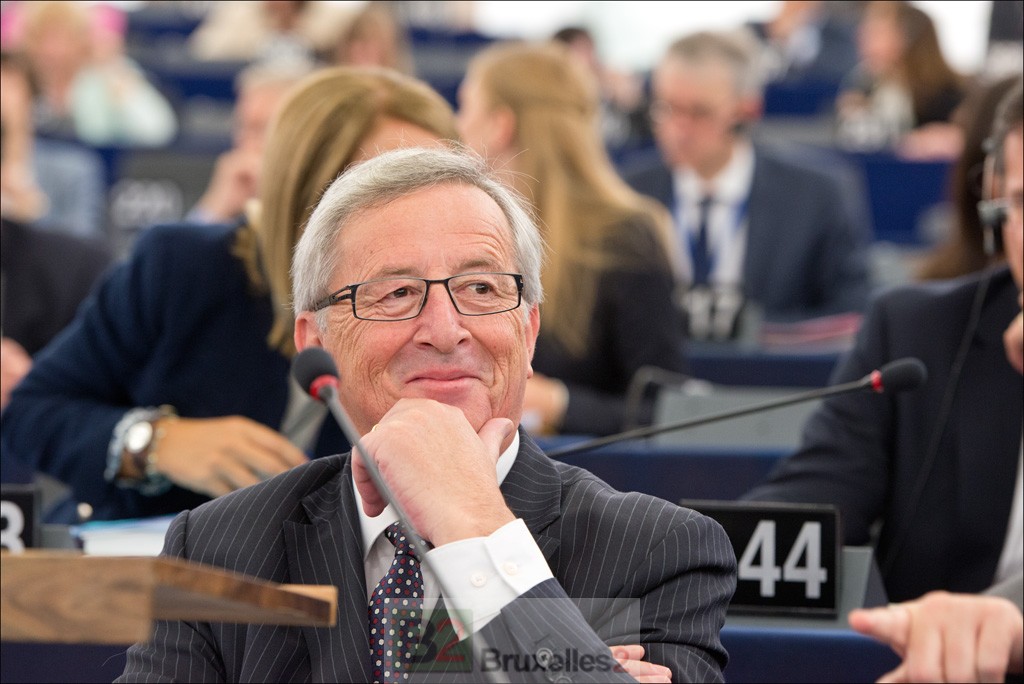Between Belgrade and Pristina, the asterisk saves the day
 (BRUSSELS2) Aah! Without these famous “asterisks” and “footnotes”, there would be no agreement and no negotiations possible at European level. This typographical rule – used in theses for bibliographies in particular – has now become a popular diplomatic trick… The 9th negotiation session between Serbs and Kosovars which has just ended today in Brussels has proven it again. Placed under the aegis of Robert Cooper, the EU's chief negotiator, and started two days ago (Wednesday February 22), it made it possible to reach an agreement on cooperation and regional representation of Kosovo.
(BRUSSELS2) Aah! Without these famous “asterisks” and “footnotes”, there would be no agreement and no negotiations possible at European level. This typographical rule – used in theses for bibliographies in particular – has now become a popular diplomatic trick… The 9th negotiation session between Serbs and Kosovars which has just ended today in Brussels has proven it again. Placed under the aegis of Robert Cooper, the EU's chief negotiator, and started two days ago (Wednesday February 22), it made it possible to reach an agreement on cooperation and regional representation of Kosovo.
The right to speak in one's own name
This agreement will allow Kosovo to participate and sign new agreements “ for his own account "and to speak" for himself » at all regional meetings. Until now, agreements had to be signed by UNMIK on behalf of Kosovo. And we remember that several meetings – notably under the Slovenian presidency – were aborted by the refusal of one to be present at the table at the same time as the other with the country's registrations. We generally got away with writing people's names (instead of countries) and not having a flag. He may use the name “Kosovo *” the asterisk will indicate: “This designation is without prejudice to positions on status, and is in line with UNSC 1244 and the ICJ Opinion on the Kosovo Declaration of Independence” (This designation is without prejudice to status positions and is consistent with United Nations Security Council Resolution No. 1244 and the opinion of the International Court of Justice on the Kosovo Declaration of Independence).
Progress on the borders, see you on the civil status
Tahiri and Stefanovic, the negotiators for Kosovo and Serbia, also concluded a technical protocol for the implementation of the Integrated Border Management (IBM) agreement, obtained on December 2. By agreeing on practical issues such as budget, construction and location of facilities, this helps make “ this agreement fully operational ". And they agreed to a meeting next week with the aim of accelerating the pace of implementation of previous agreements, in particular that on civil status.
For Serbia the status of candidate country...
This agreement was welcomed by European officials (High Representative Lady Ashton and Enlargement Commissioner Stefan Füle) as “particularly welcome (…) for Serbia (…) in view of the Council’s deliberations " next week). On Monday the foreign ministers meet to take stock of the Serbia-Kosovo dialogue, and the next day, their European Affairs counterparts have on the table the decision to recognize Serbia as a candidate country. Status for which several countries are campaigning.
France, Italy and Austria in particular recently sent a letter to the High Representative indicating their desire to see this status recognized for Serbia. After one " in-depth analysis of Serbia's progress (…) we came to the conclusion that the (requested) conditions have been met. Decisive progress has been made in implementing the agreements reached so far in the dialogue between Belgrade and Pristina. write the three foreign ministers. " We should keep our promises made in December and follow up on Serbia's redoubled commitments by granting (it) candidate country status.. Set up a " conditionality ", also means to be " rigorous and fair they point out. There goes the " credibility of EU enlargement policies "which must have a" predictability ».
…and for Kosovo, agreements with the Union
For Kosovo, this agreement is also " important because it allows him to participate fully and fully in regional meetings and events” and to be able to establish contractual relations with the Union, specify Commissioners Ashton and Füle. “Kosovo will then follow the same European course as the others in the Balkans, in accordance with its European perspective.. » The European Commission should therefore propose launching a feasibility study for the signing of a Stabilization and Association Agreement (SAA) with Kosovo. Some member countries – such as France – also ask that Kosovo be closely associated with various community programs. “ It's a strategic calculation – as a French diplomat explained to a few journalists including B2 – “ We are betting that European integration contributes to stabilizing the region. It is one of the strong commitments of the European Union, after the tragedies that the region experienced in 1999, to offer a European future for these countries. »
Read also:



Comments closed.